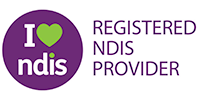NDIS Support Coordination plays an important role in helping people access mental health support through the National Disability Insurance Scheme (NDIS). It serves as a guide, connecting individuals with the right services and resources customised to their needs.
With NDIS Support Coordination, individuals can navigate the complexities of the mental health system more effectively, ensuring they receive the assistance and care they require.
By working closely with support coordinators, individuals can access a range of services such as therapy, counselling, and community programs, empowering them to lead fulfilling lives despite mental health challenges.
Challenges Faced by NDIS Participants
Navigating the NDIS system can be really tough for participants due to its complexity. Many people struggle to understand the ins and outs of the system, making it hard for them to get the support they need. The language used, and the processes involved can be confusing, leaving individuals feeling lost.
Moreover, coordinating different supports within their NDIS plans can feel like a daunting task. From finding the right service providers to making sure everyone is working together smoothly, it’s a challenge for many participants to manage on their own. This is where NDIS support coordination steps in, offering guidance and assistance to help individuals overcome these obstacles and access the support they deserve.
Role of NDIS Support Coordination
In the complicated world of NDIS, Support Coordination shines as a guiding light for participants. These skilled professionals are like navigators, helping people steer through the intricacies of the NDIS system. They’re equipped with the right training and know-how to simplify things for their clients. Their main goal? To arm participants with the tools and know-how to make the most of their NDIS plans. They’re there to empower individuals, making sure they understand and access all the support available to them. With their help, participants can tackle challenges confidently and get the assistance they need to do well.
Providing guidance and assistance
Support coordinators are like reliable friends, giving important advice and help to participants as they navigate the NDIS. They’re there to explain complicated parts of their plans and give useful tips on getting the support they need. These professionals are dedicated to making sure participants feel confident and knowledgeable as they move forward.
They’re committed to helping every step of the way, so participants always feel supported and in control. With their caring guidance, individuals can tackle challenges with assurance, knowing they have someone to lean on during their NDIS journey.
Connecting with a broader support system
Support coordinators do more than just work within the NDIS. They’re key players in linking participants to a wider network of support services. They understand that overall well-being involves more than just what’s in the NDIS plan.
These experts help people tap into community resources, regular services, and government programs that match their unique needs. They’re all about making sure participants have access to everything that can help them flourish, ensuring they’re connected to a supportive community and have the tools to succeed beyond their NDIS plan.
Building capacity for implementation
Perhaps most importantly, NDIS Support Coordination is instrumental in building the capacity of participants to implement their support plans effectively. Through personalised guidance and hands-on assistance, support coordinators empower individuals to communicate confidently with service providers, advocate for their rights, and make informed decisions regarding their NDIS journey.
Importance of mental health support
In disability care, mental health support is incredibly crucial. For people facing challenges with their mental well-being, getting the right help is like a lifeline. It brings comfort, stability, and a way to heal and get better. Mental health support gives individuals the tools to cope with daily life and pursue their goals, fostering a sense of hope and strength. It’s about providing the support and resources needed to navigate through tough times and do well.
How Support Coordinators Facilitate Mental Health Recovery
Support coordinators are like advocates for mental health recovery, helping participants access a range of services designed just for them. They link people up with experts who understand mental health or arrange group support networks. These professionals are dedicated to helping participants on their path to feeling better overall.
By providing personalised support and guidance, support coordinators empower individuals to take control of their mental health journey and work towards achieving their goals. With their assistance, participants can build resilience and move forward with confidence.
A solution for mental health recovery
At My Life My Way, we understand that mental health recovery is a journey that’s unique to each person. Our team of Support Coordinators is committed to being there for participants every step of the way, offering personalised support and access to various resources. We’re here to help individuals navigate their path to resilience, empowerment, and healing.
Through personalised support coordination, we aim to empower individuals to take charge of their lives, finding purpose and belonging as they journey towards recovery. NDIS Support Coordination is really important for people with mental health challenges. Support coordinators help them get the right support they need.
They give personalised advice, support them in every way, and speak up for them. With their help, individuals can handle the complicated NDIS system better, feeling more confident and strong. It’s all about making sure everyone gets the support they need for a better future.
FAQs
We’ll figure out if you’re eligible when we plan your support. We look at things like how complicated your needs are and how much help you need to make your plan work.
Yes, you can pick your Support Coordinator. You must find someone who understands what you need and how you like to work.
You can get lots of different types of support, like talking to psychologists or psychiatrists, joining groups with others who understand, and getting special therapy that fits you.
How often you get help depends on what you need. Your Support Coordinator will work with you to figure out how much support is right for you.
No, you don’t have to pay. The NDIS covers the cost of Support Coordination as part of your plan. But if you have questions about money or how it works, you can always talk to your Support Coordinator.



